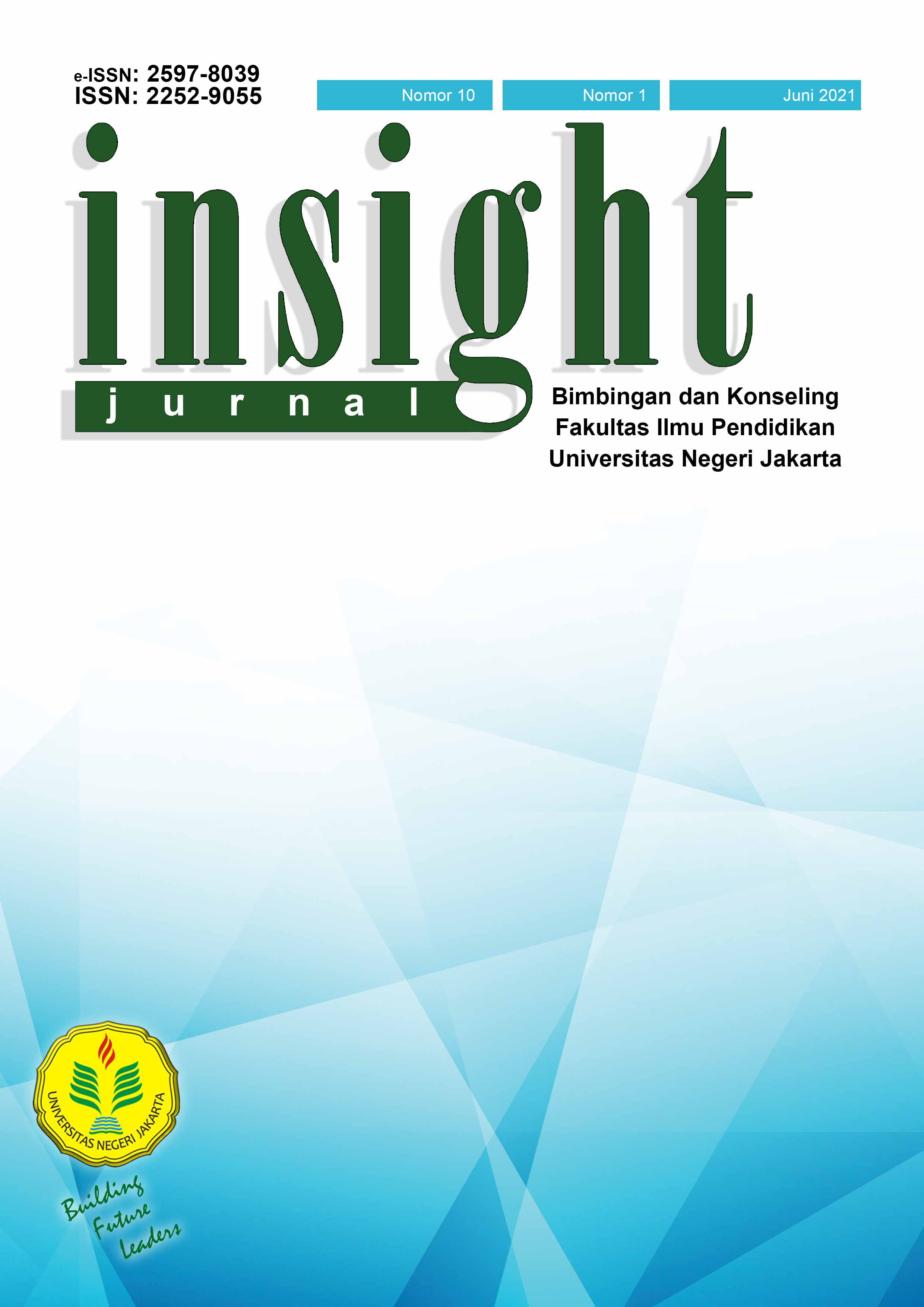Pengaruh Stigma Masyarakat Terhadap Pembentukan Konsep Diri Remaja Penyalahgunaan Narkoba di Yayasan Bersama Kita Pulih (BESAKIH)
DOI:
https://doi.org/10.21009/INSIGHT.101.08Keywords:
Remaja pengguna narkoba, konsep dir, stigma masyarakatAbstract
Tujuan penelitian ini adalah untuk melihat bagaimana stigma masyarakat mempengaruhi konsep diri remaja penyalahgunaan narkoba di Yayasan Bersama Kita Pulih. Penelitian ini menggunakan pendekatan kualitatif dan metode yang digunakan adalah studi kasus dengan responden sebanyak 2 orang remaja penyalahguna narkoba. Pengambilan sampel menggunakan wawancara, observasi dan dokumentasi. Hasil dari penelitian ini menunjukkan bahwa responden pertama yang berinisial AA sudah memiliki konsep diri yang positif setelah melakukan rehabilitasi. hal tersebut terlihat dari mulai terpenuhinya dimensi-dimensi dalam konsep diri yaitu dimensi pribadi, dimensi sosial, dimensi fisik, dimensi etika dan moral serta dimensi keluarga. Sedangkan responden kedua yang berinisial MAM memiliki konsep diri yang negatif ditandai tidak merasa dirinya bermasalah dan tidak memerlukan perawatan rehabilitasi. Hal tersebut karena MAM memiliki kontrol emosi yang rendah, penerimaan diri yang negatif dan rendahnya tingkat beradaptasi dengan lingkungan. Stigma masyarakat 50% cukup berpengaruh terhadap pembentukan konsep diri pada remaja jika hubungan dengan keluarga kurang baik. Karena pada masa remaja sangat diperlukan dukungan dan kasih sayang orangtua dalam perkembangan emosional remaja.
The purpose of this research is to see how social stigma affects self-concept of adolescent drug abuse at Yayasan Bersama Kita Pulih. This research uses a qualitative approach and method that is used is a case study with the respondents of 2 adolescents who abuse drugs. Sampling uses interview, observation and documentation. The result of this research shows that the first respondent with the initials AA already has a positive self-concept after doing the rehabilitation. It can be seen from starting the fulfillment of dimensions in self-concept, namely personal dimension, social dimension, physical dimension, ethical and moral dimensions and also family dimension. While, the second respondent with the initials MAM has a negative self-concept that is indicated from not feeling that his self is problematic and does not require rehabilitation treatment. This is because MAM has a low emotional control, negative self-acceptance and a low level-adaptation with the environment. 50% of social stigma is quite influential towards the formation of self-concept in adolescent if the relationship with the family is not good enough. Because in adolescence, parental support and affection are required in adolescent emotional development.
Downloads
Published
Issue
Section
License
Authors who publish with this Journal agree to the following terms:
- Author retain copyright and grant the journal right of first publication with the work simultaneously licensed under a creative commons attribution licensethat allow others to share the work within an acknowledgement of the work’s authorship and initial publication of this journal.
- Authors are able to enter into separate, additional contractual arrangementfor the non-exclusive distribution of the journal’s published version of the work (e.g. acknowledgement of its initial publication in this journal).
- Authors are permitted and encouraged to post their work online(e.g. in institutional repositories or on their websites) prior to and during the submission process, as it can lead to productive exchanges, as well as earlier and greater citation of published works.
Users/public use of this website will be licensed to CC BY







